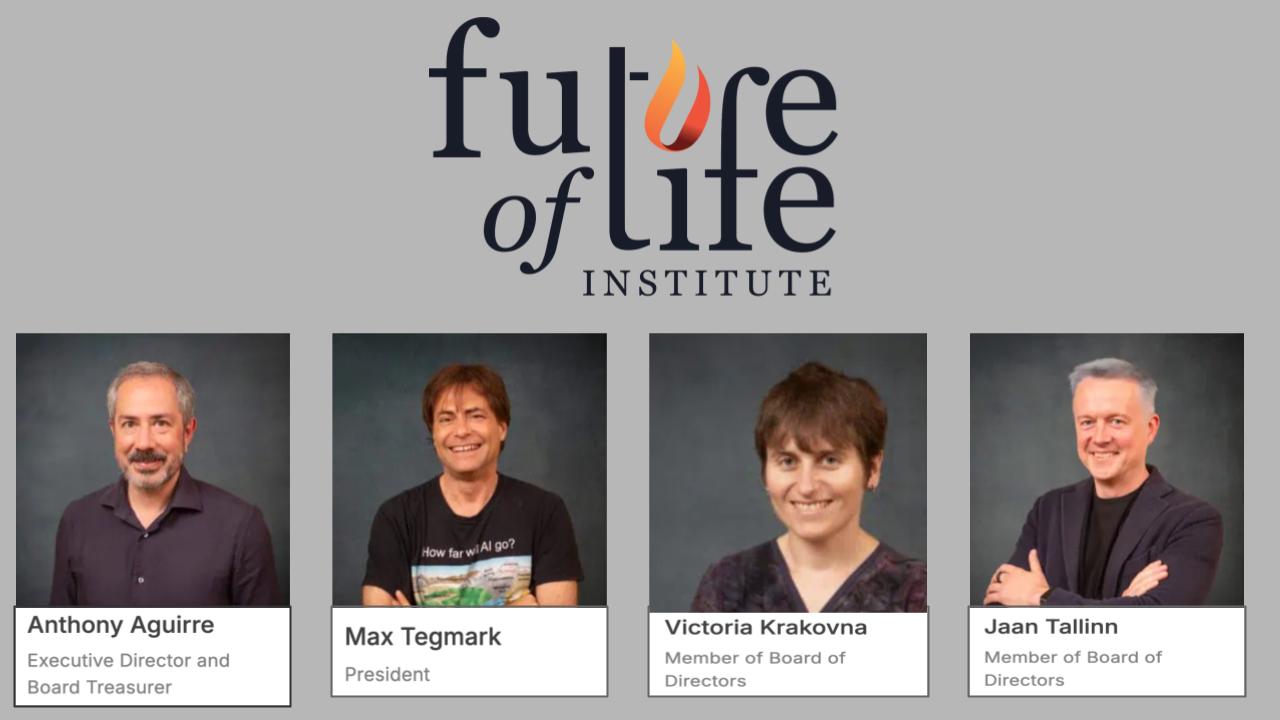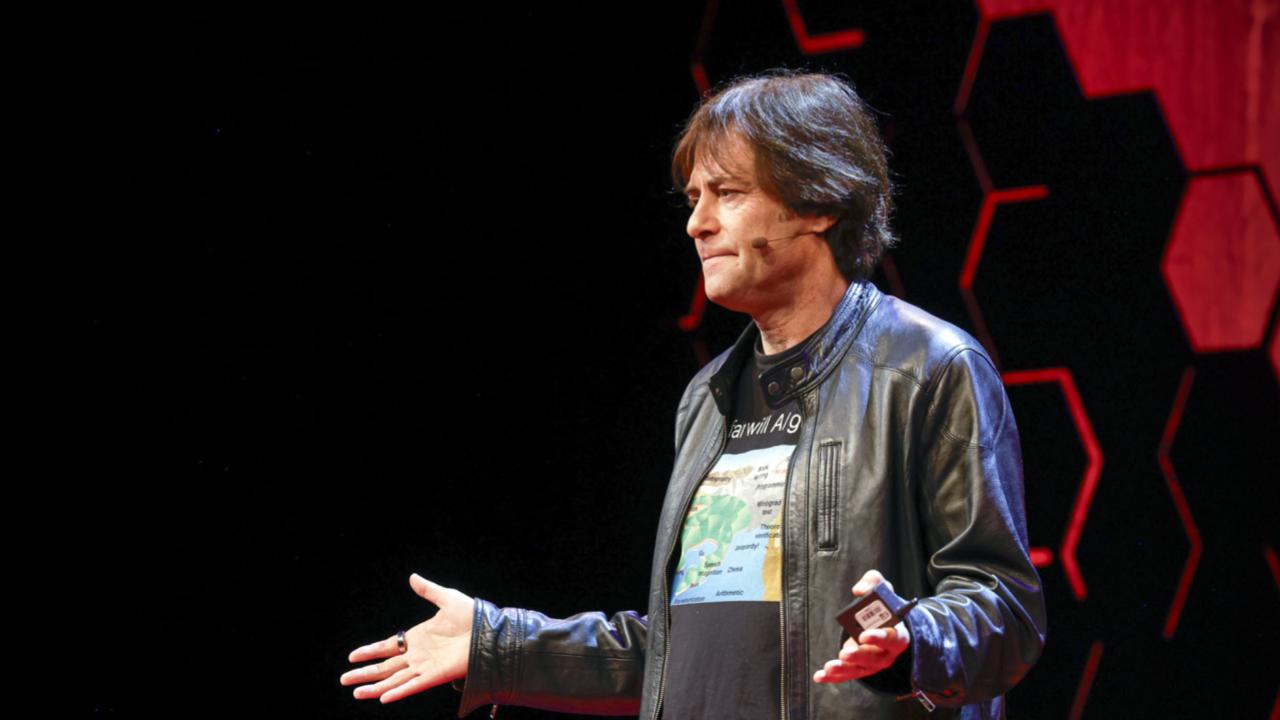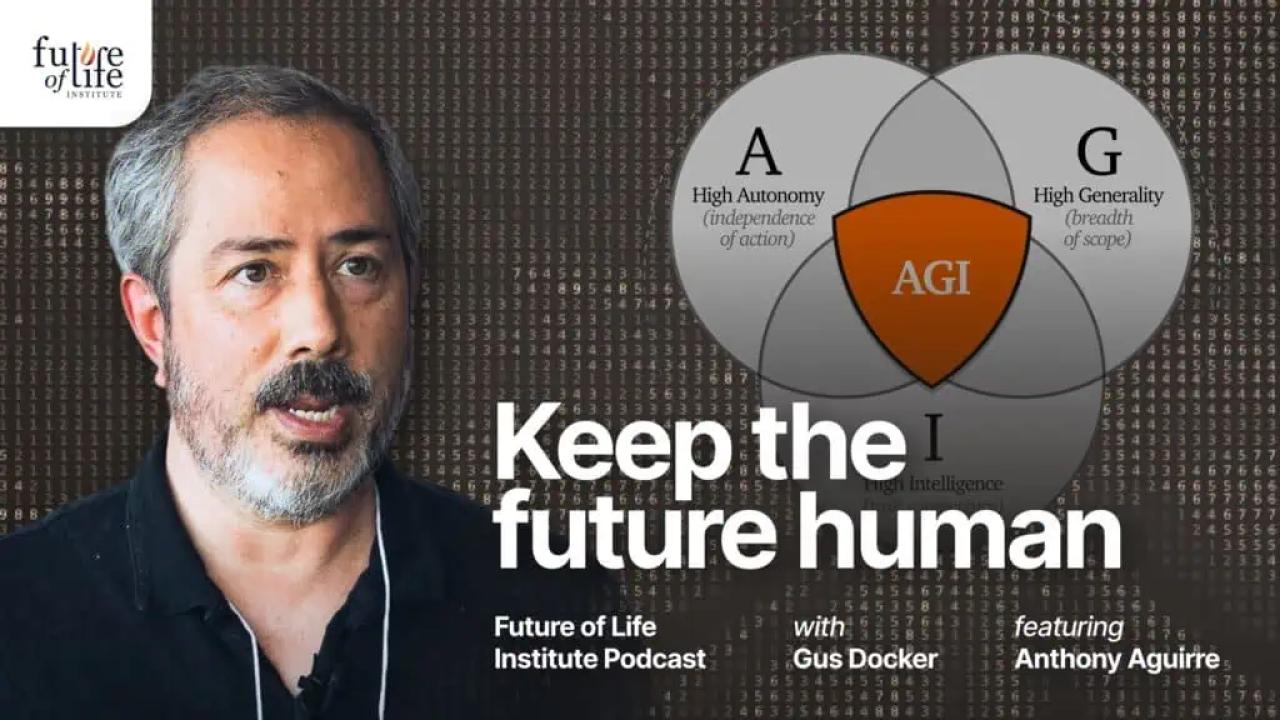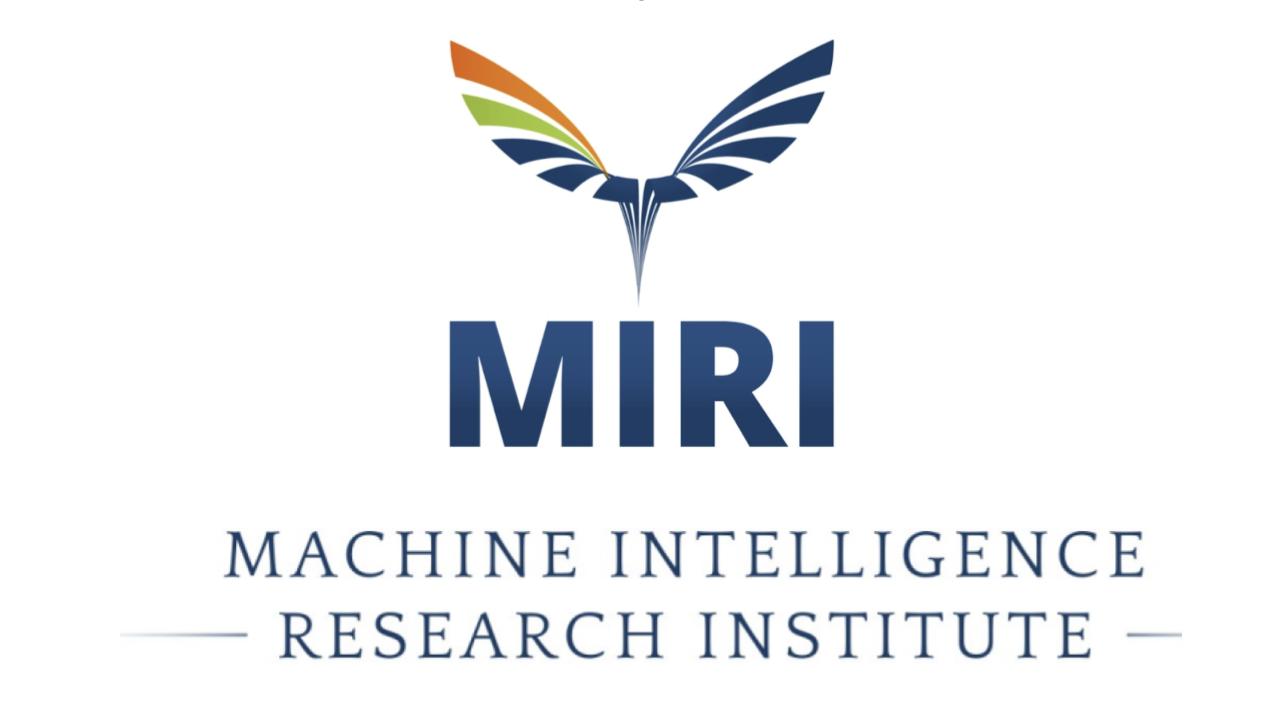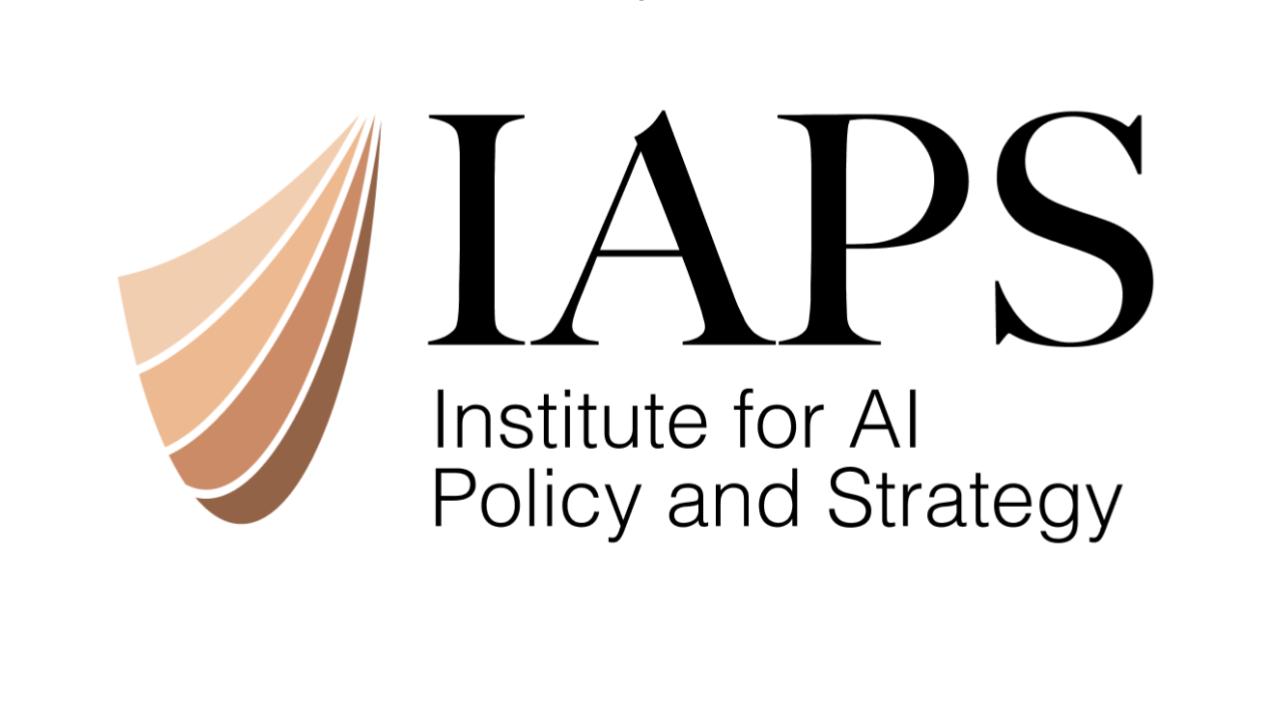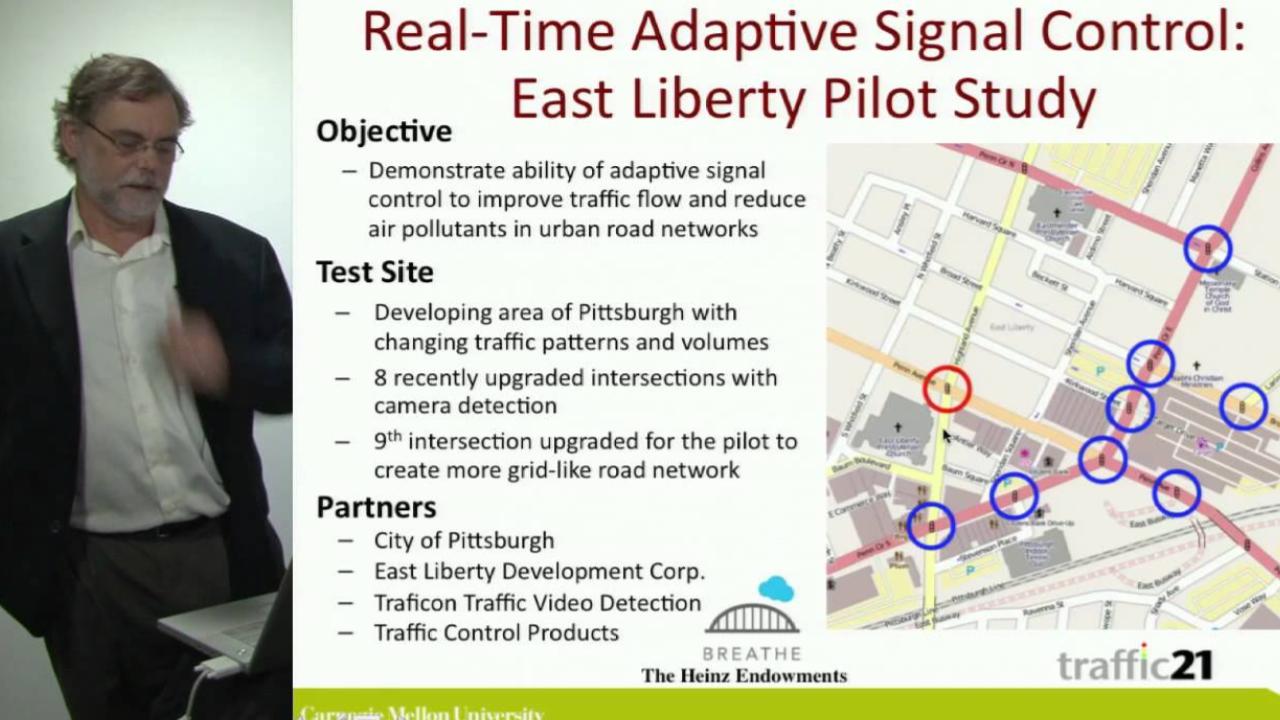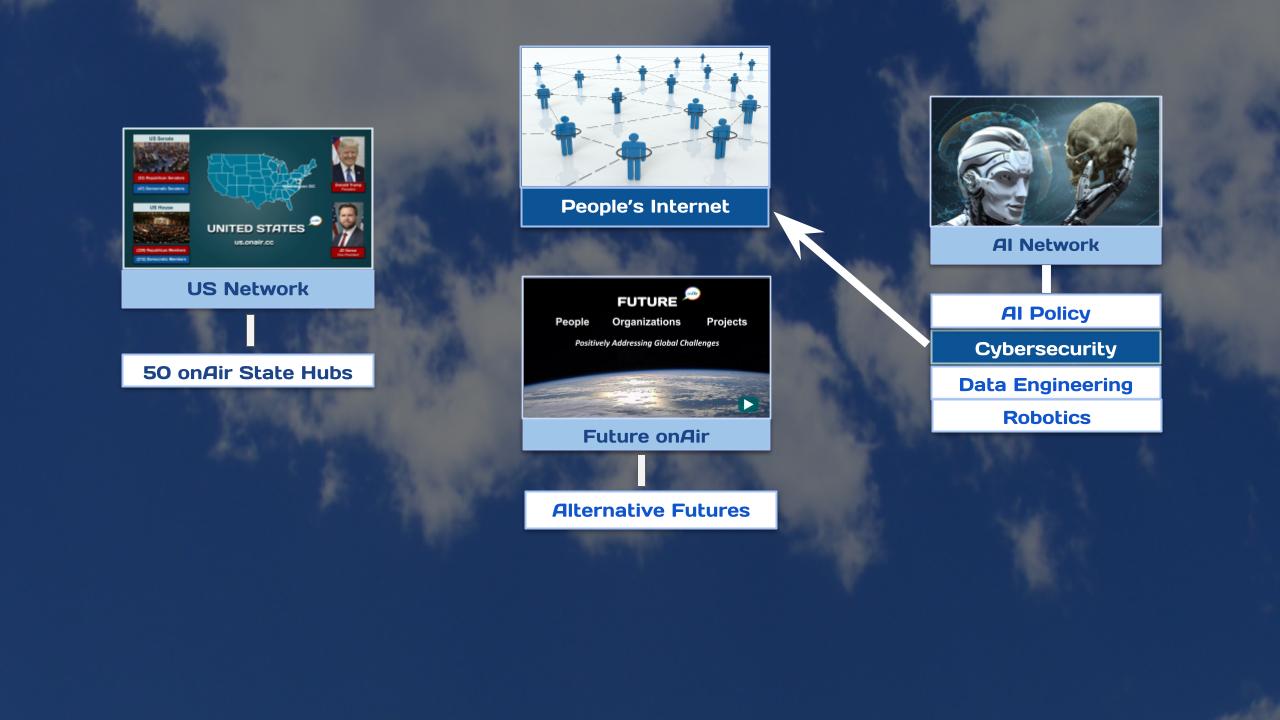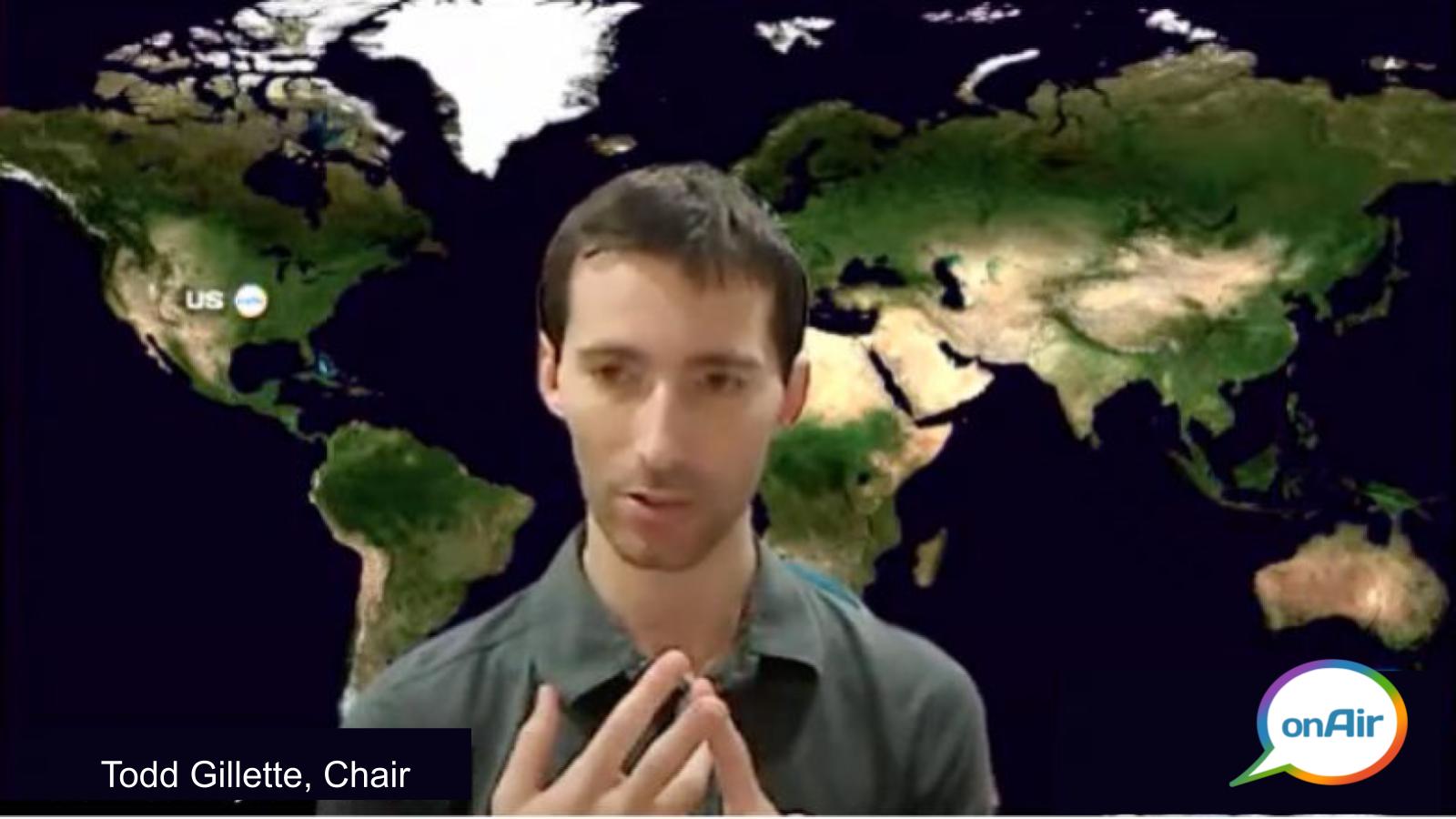https://www.youtube.com/watch?v=zl0dsXLIfIY&ab_channel=USonAirNetwork
The US onAir Network has 50 state onAir hubs and a national US onAir Hub at us.onair.cc. This video has been narrated by: Karina Lipsman.
Transcript:
A strong democracy depends on all of us. Introducing United States onAir… A nonprofit nonpartisan network working to become the People’s Platform for Democracy.
We are a network of 50 curated onAir state hubs who share their content with the national US onAir Hub.
A New Resource for Democracy. Now more than ever, we need unbiased information from sources you can trust.Our onAir volunteers from US colleges, universities, and nonpartisan organizations provide a new resource for democracy.
The US onAir Network of hubs connect citizens with their government, candidates, issues, and each other by providing a platform on which users can find information on who represents them
and how to vote .. and much more. US onAir is a place where you can Learn ……. Discuss ….… and Find Common Ground… with your representatives, experts, and fellow Americans.
Democracy … has always been a struggle. That is why our mission at US onAir is to bring together Americans to become better informed and engaged in our democracy. We support civil discussion and constructive and impactful solutions.
Your Voice Matters onAir. Join the conversation at … us.onair.cc
